Find Help
More Items From Ergsy search
-
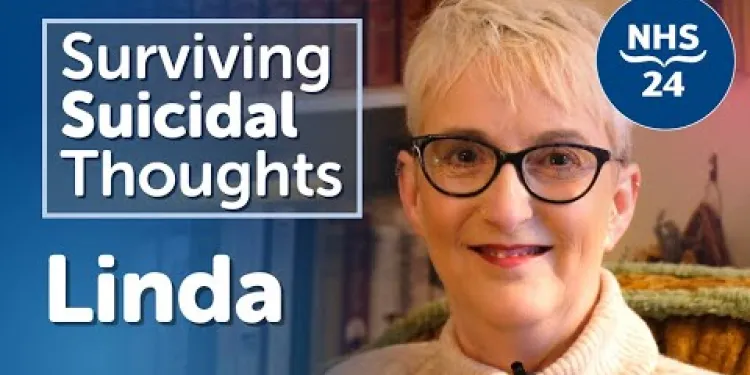
Linda | Surviving Suicidal Thoughts
Relevance: 100%
-
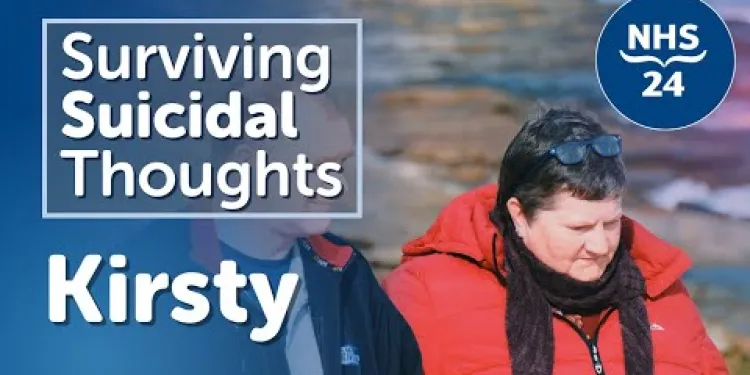
Kirsty | Surviving Suicidal Thoughts
Relevance: 100%
-
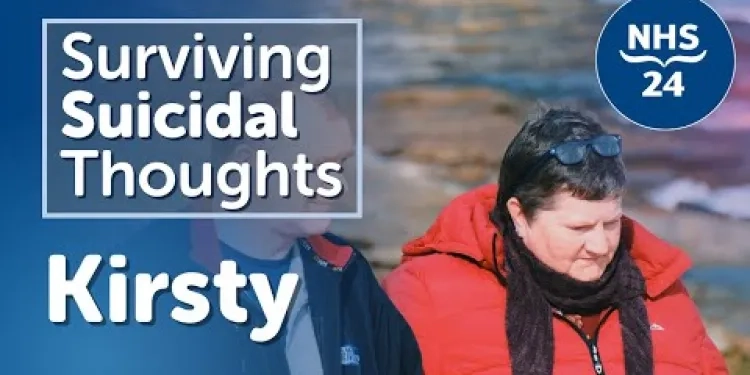
Suicidal Thoughts - Kirsty
Relevance: 81%
-

SLaM's Suicide Prevention, Learning and Support Strategy
Relevance: 41%
-
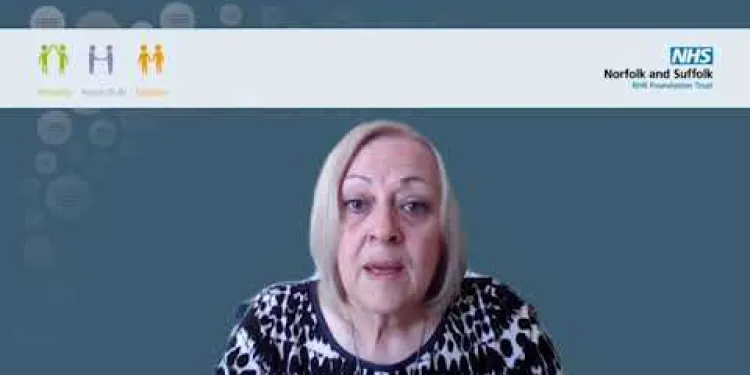
Suicide and Self Harm Prevention Strategy 2023-28
Relevance: 37%
-
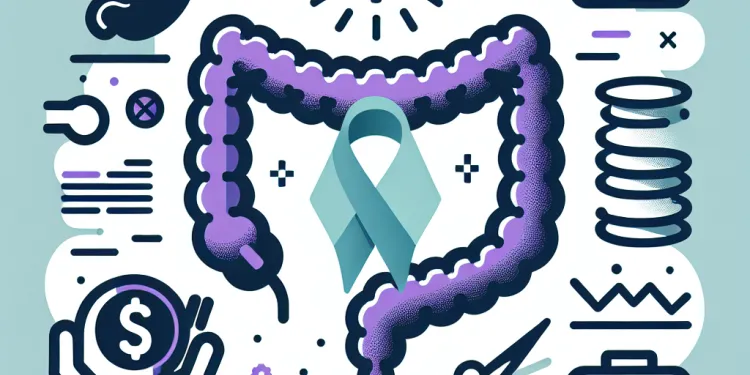
What is the survival rate for bowel cancer?
Relevance: 32%
-

What is the survival rate for testicular cancer?
Relevance: 32%
-

Can nits survive on furniture or clothing?
Relevance: 29%
-

Can AI predict lung cancer survival rates?
Relevance: 28%
-

How does the bacteria Yersinia pestis survive between outbreaks?
Relevance: 21%
-

Dr Hilary Jones shares his professional and personal thoughts on Colten Care
Relevance: 19%
-

What are the symptoms of postnatal depression?
Relevance: 18%
-
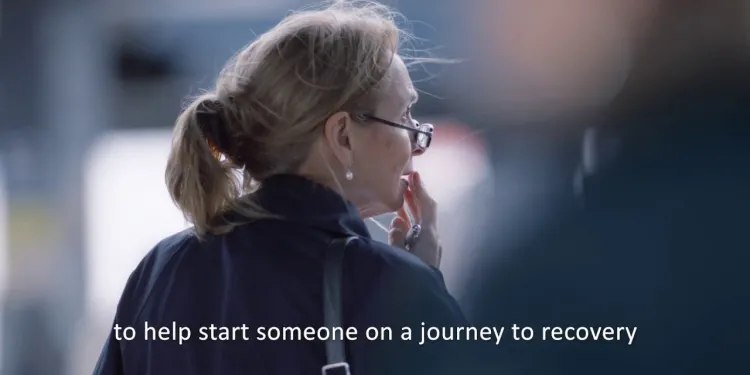
Small Talk Saves Lives
Relevance: 14%
-

What conditions is ketamine used to treat?
Relevance: 14%
-

What are the symptoms of SAD?
Relevance: 14%
-

What are the less common but serious side effects of weight loss drugs?
Relevance: 12%
-
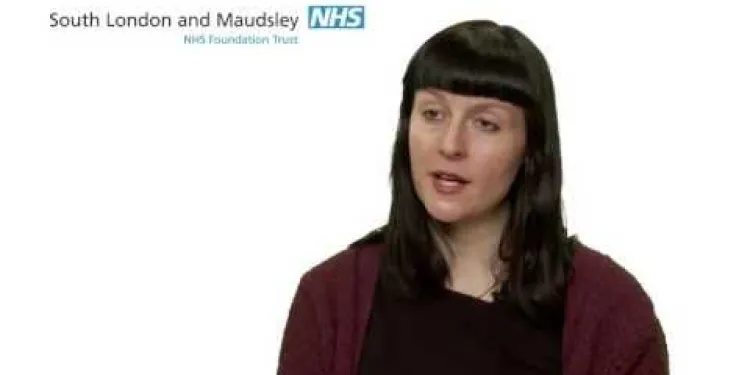
Self Harm
Relevance: 12%
-
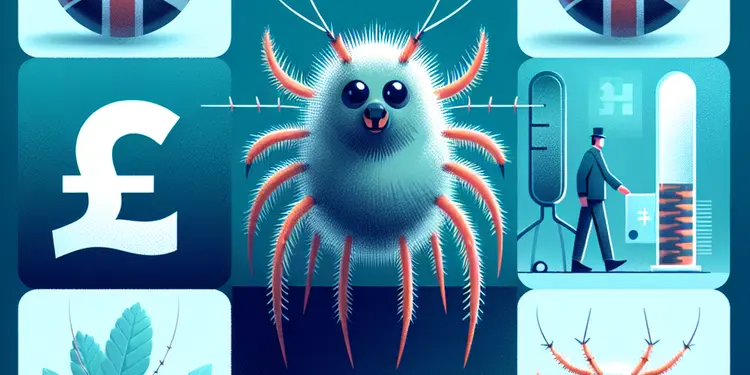
How long can mites live without a human host?
Relevance: 12%
-
What are the long-term effects of untreated eating disorders?
Relevance: 12%
-
What is body dysmorphia and how is it related to eating disorders?
Relevance: 12%
-

Do nits live off the scalp?
Relevance: 11%
-

Are there any contraindications for using Wegovy?
Relevance: 10%
-

How does the loneliness epidemic impact mental health?
Relevance: 10%
-
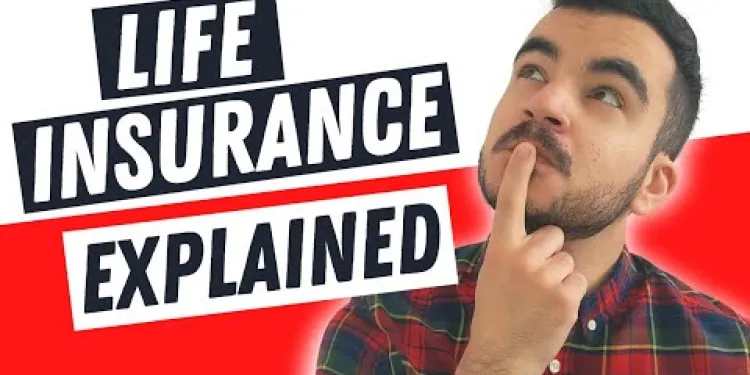
Should You Get Life Insurance UK | Life Insurance & Life Assurance
Relevance: 10%
-
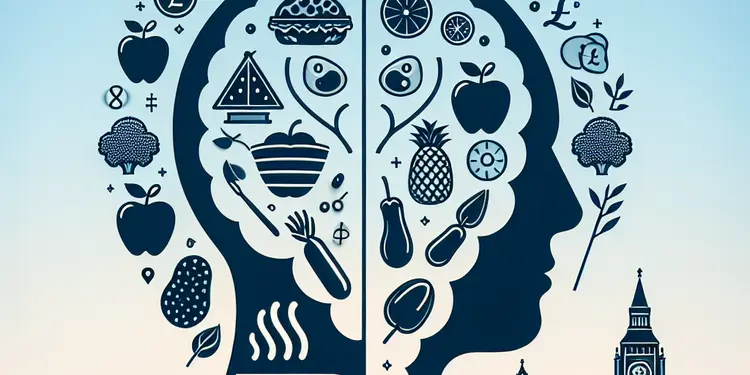
How do eating disorders affect mental health?
Relevance: 10%
-

What is the role of a defibrillator in CPR?
Relevance: 10%
-
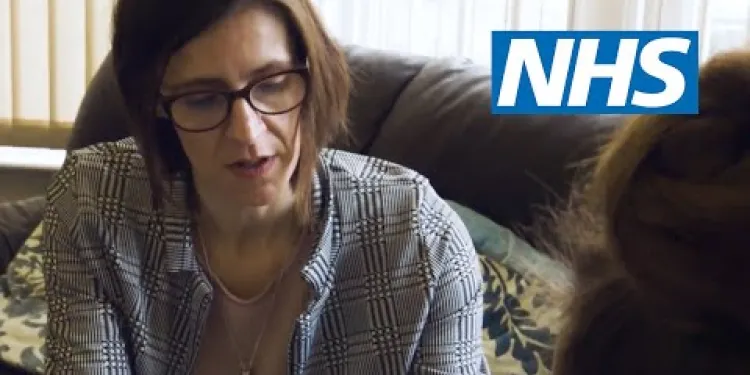
Talking about self-harm | NHS
Relevance: 10%
-

Can concussions lead to mental health issues?
Relevance: 9%
-

What is testicular cancer?
Relevance: 9%
-

Can HIV be transmitted through insect bites?
Relevance: 9%
-

Can testicular cancer spread to other parts of the body?
Relevance: 9%
-

What are common side effects of weight loss drugs?
Relevance: 9%
-

Can gifting reduce future inheritance tax liabilities?
Relevance: 9%
-

How does binge drinking affect mental health?
Relevance: 9%
-
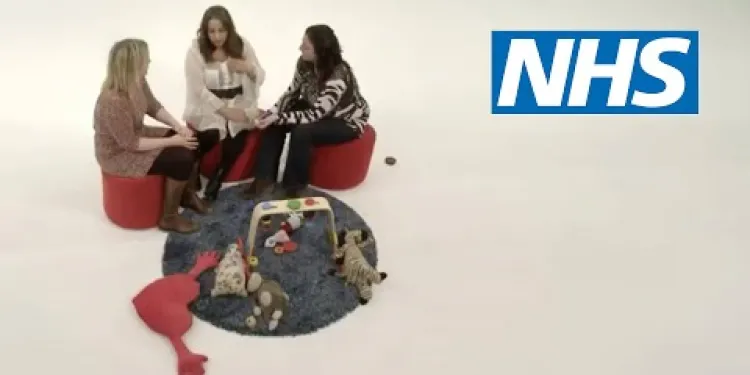
How do I know if I have postnatal depression? | NHS
Relevance: 9%
-

How is ketamine different from traditional antidepressants?
Relevance: 9%
-

Is there any inheritance tax exemption for spouses or civil partners?
Relevance: 9%
-

How common is testicular cancer?
Relevance: 9%
-

What are the benefits of regular mammograms?
Relevance: 9%
-

Treating anxiety and depression - www.slam.nhs.uk
Relevance: 9%
Kirsty | Surviving Suicidal Thoughts
Introduction to Kirsty's Journey
In the United Kingdom, mental health awareness has steadily increased; however, the struggle with suicidal thoughts remains a significant issue. Kirsty's story is a poignant example of resilience and the importance of seeking support. This narrative sheds light on her experiences, illustrating the steps she took to survive and find hope again.The Darkest Days
Kirsty, like many individuals, encountered periods in her life where the weight of suicidal thoughts became overwhelming. These darkest days were marked by a profound sense of hopelessness and isolation, making it difficult for her to see a way forward. The stigma surrounding mental health issues often exacerbated her feelings, leading her to believe she was alone in her struggles.Reaching Out for Help
Despite the pervasive stigma, Kirsty made the courageous decision to reach out for help. She contacted mental health professionals in the UK and utilized helplines such as Samaritans. The moment she sought assistance was a pivotal turning point in her journey. She discovered that there were people who cared and resources available to support her through her darkest moments.Support Systems and Therapy
With professional help, Kirsty began to rebuild her life. Therapy played a crucial role in her recovery, providing her with coping mechanisms and a safe space to express her feelings. Equally important were her family and friends, who offered unwavering support. Together, these support systems formed a robust foundation that enabled Kirsty to reclaim her life.Raising Awareness and Helping Others
Kirsty's experience inspired her to become an advocate for mental health awareness. She now shares her story to help others who might be struggling with similar thoughts. By speaking out, she hopes to reduce the stigma associated with mental health issues and encourage those in need to seek help without fear of judgment.Resources in the United Kingdom
For those facing suicidal thoughts and seeking support in the UK, there are numerous resources available. Organisations like the Samaritans, Mind, and the NHS provide essential services and helplines. These resources can offer immediate support and guide individuals toward professional help, illustrating that there is always hope and help available.Kirsty | Getting Through Tough Times
Meet Kirsty
In the UK, people are learning more about mental health, but many still feel very sad sometimes. Kirsty felt this way too. Her story shows how she fought these feelings and found hope again.Tough Times
Kirsty had days when she felt really sad and alone. It was hard for her to feel happy about the future. She thought nobody would understand her feelings.Asking for Help
Kirsty decided to be brave and ask for help. She called people who could talk to her, like Samaritans. This was a big step for her. She found out there are people who care and want to help.Getting Support
With help from professionals, Kirsty started to feel better. She went to therapy, where she learned new ways to handle her feelings. Her family and friends also helped her a lot. They all worked together to support Kirsty.Helping Others
Now, Kirsty wants to help others by telling her story. She hopes people who feel like she did will know they can get help too. This can make it easier for everyone to talk about these feelings.Where to Get Help in the UK
If you feel very sad in the UK, you can get help. Groups like Samaritans, Mind, and the NHS are there to talk to you. They can help you find more support and show you that there is always hope.Frequently Asked Questions
What should I do if I have suicidal thoughts?
If you are experiencing suicidal thoughts, it is essential to seek immediate help. Contact a mental health professional, a trusted friend or family member, or call a helpline such as Samaritans at 116 123.
Who can I talk to about my suicidal thoughts?
You can talk to a mental health professional, such as a therapist or counsellor, as well as trusted friends or family members. Helplines like Samaritans (116 123) and SHOUT (text 'SHOUT' to 85258) are also available for immediate support.
How can I support a loved one with suicidal thoughts?
Listen to them without judgment, encourage them to seek professional help, and offer your support. Make sure they know they are not alone and check in regularly.
What are the warning signs of suicidal thoughts?
Warning signs include: talking about wanting to die, feeling hopeless, withdrawing from others, significant mood swings, and changes in sleep or eating patterns. If someone shows these signs, take them seriously and encourage them to seek help.
Are there helplines in the UK for immediate suicide prevention support?
Yes, in the UK, you can contact Samaritans at 116 123, SHOUT by texting 'SHOUT' to 85258, or Papyrus HOPELINEUK at 0800 068 4141 for immediate support.
Is it normal to have suicidal thoughts?
It can be relatively common for people to experience suicidal thoughts during times of extreme stress or mental health struggles. However, it's crucial to seek help and talk to someone about what you are going through.
What are some coping strategies for managing suicidal thoughts?
Coping strategies include speaking to a mental health professional, creating a safety plan, connecting with supportive friends or family, engaging in physical activities, and practicing mindfulness or relaxation techniques.
Can medication help with suicidal thoughts?
In some cases, medications like antidepressants or mood stabilizers can help reduce suicidal thoughts. It’s essential to speak with a healthcare provider to discuss the best treatment options for you.
How can I create a safety plan for suicidal thoughts?
A safety plan typically includes identifying warning signs, listing coping strategies, finding sources of support (friends, family, and professionals), and removing means of self-harm. Working with a therapist can help you develop a personalized safety plan.
Should I avoid talking about suicide with someone who is struggling?
No, talking openly about suicide can actually provide relief for someone who is struggling. Approach the conversation with care, listen without judgment, and encourage them to seek professional help.
What's the difference between suicidal thoughts and suicidal intent?
Suicidal thoughts can involve thinking about or imagining suicide without any specific plans or intention to act on them. Suicidal intent involves a definite plan and intent to end one’s life. Both require attention and care.
How can I access mental health services in the UK?
You can access mental health services through your GP, who can refer you to a specialist. There are also various charities and organizations that provide support, such as Mind, Rethink Mental Illness, and the NHS Mental Health Services.
Can lifestyle changes help reduce suicidal thoughts?
Yes, lifestyle changes such as regular exercise, a balanced diet, adequate sleep, and engaging in activities that bring joy and fulfillment can help improve mental health and reduce suicidal thoughts.
What role do friends and family play in suicide prevention?
Friends and family can provide crucial support by listening, showing empathy, encouraging professional help, and checking in regularly. They can also help remove means of self-harm and ensure the affected person is not isolated.
Are there online resources available for suicidal thoughts support?
Yes, there are many online resources available, including websites like Mind, Rethink Mental Illness, and Samaritans. Online forums and support groups can also provide a sense of community and understanding.
What to Do If You Feel Very Sad or Want to Hurt Yourself
Do you feel very sad? Or do you feel like you want to hurt yourself? You are not alone, and there are people who can help. Here’s what you can do:
- Talk to Someone: Find a grown-up you trust, like a parent, teacher, or a friend. Tell them how you feel.
- Call for Help: Call a special phone line where nice people can talk to you. In the USA, you can call 988. Different countries have different numbers.
- Write it Down: Sometimes writing your feelings helps. Draw or keep a journal about how you feel.
- Take Deep Breaths: Breathing slowly can make you feel calmer. Breathe in deeply and slowly breathe out.
Remember, you are very important. People care about you and want to help. Please reach out. You don’t have to feel this way alone.
If you are having thoughts about hurting yourself, it is very important to get help right away. Talk to someone who can help like a doctor, a friend you trust, or a family member. You can also call a helpline like Samaritans at 116 123 for support.
Who can I talk to if I feel really sad and want to hurt myself?
If you are feeling very sad and thinking about hurting yourself, it is important to talk to someone. Here are some people who can help:
- Family or Friends: You can talk to someone you trust, like a family member or a friend.
- Teacher or School Counselor: If you are at school, a teacher or school counselor can help you.
- Doctor: A doctor or nurse can listen and give you advice.
- Hotline: There are special phone numbers you can call to talk to someone who wants to help. You can look these up online or ask a trusted adult.
When you talk to someone, you might feel better and they can help you find more ways to feel good.
Remember, it is okay to ask for help. You are not alone.
You can talk to someone like a therapist or a counsellor. They help with feelings. You can also talk to friends or family who you trust. If you need help right away, you can call a helpline. You can call Samaritans at 116 123. You can also text SHOUT to 85258 for help.
How can I help a loved one who feels very sad and wants to hurt themselves?
If someone you care about feels very sad, you can help them.
- Listen: Let them talk. Show you care by listening.
- Talk: Say kind things. Tell them they are not alone.
- Ask for Help: Encourage them to talk to a doctor or therapist.
- Be There: Make plans to spend time together.
- Emergency: If they are in danger, call emergency services or a helpline.
You can also learn more by reading books or using apps to help them. Reach out to support groups or professionals for more advice.
Listen to them. Do not judge them. Tell them to talk to a doctor or counselor. Show them you care. Make sure they know they are not alone. Keep checking on them often.
What are the warning signs of wanting to hurt yourself?
Sometimes people feel very sad and might want to hurt themselves. It is important to know the signs to get help.
- Telling someone that you want to hurt yourself.
- Feeling very sad or hopeless for a long time.
- Not wanting to do activities you used to enjoy.
- Giving away your things.
- Talking about death a lot.
- Changing your eating or sleeping habits.
If you or someone you know shows these signs, it is important to talk to a trusted adult or a professional. Use tools like phone hotlines or apps that help you connect with supportive people.
Look out for these warning signs: talking about wanting to die, feeling like nothing will get better, staying away from friends and family, having big mood changes, and sleeping or eating very differently. If you see someone with these signs, it's important to pay attention and help them get support.
Can I call someone in the UK if I need help to stop feeling very sad and hurt myself?
In the UK, if you need help, you can call Samaritans at 116 123. You can also text 'SHOUT' to 85258. Another option is calling Papyrus HOPELINEUK at 0800 068 4141. They can help you right away.
Do people sometimes think about hurting themselves?
Sometimes, people may feel very sad or stressed and think about hurting themselves. It's important to talk to someone and get help if you feel this way.
How can I feel better when I have sad and bad thoughts?
There are ways to help you feel better. You can talk to a doctor or therapist about how you feel. Make a simple plan to keep yourself safe if you feel upset. Talk to friends or family who make you feel good. Doing fun activities like running, walking, or playing can help. Try to relax with deep breaths or quiet time to help calm your mind.
Can medicine help if I feel like I want to hurt myself?
If you ever feel like you want to hurt yourself, tell an adult you trust. Medicine can help some people feel better. Doctors can give medicine to help with sad and scary thoughts. It’s important to talk to a doctor or a therapist.
Here are some things that can help:
- Talk to someone who will listen, like a friend or a family member.
- Call a help line and talk to a person who can help.
- Write down your feelings in a diary.
- Draw a picture or do something you like, like playing or listening to music.
Remember, you are not alone. People want to help you feel better.
Sometimes, taking medicine can help people feel better and have fewer sad thoughts. These medicines are called antidepressants or mood stabilizers. It's really important to talk to a doctor or nurse to find out what is the best medicine for you.
How can I make a safety plan if I feel like hurting myself?
A safety plan is a way to keep you safe. It helps you know what to do when you feel upset or in danger.
Here are the steps for a safety plan:
- Know the warning signs: These are clues that show you might be in trouble, like feeling really sad or scared.
- List coping strategies: These are things you can do to feel better, like drawing, listening to music, or taking deep breaths.
- Find support: Make a list of people who can help you, like friends, family, or a counselor.
- Remove dangers: Make sure things that could hurt you are put away and hard to reach.
It’s a good idea to talk with a therapist to make your own safety plan. They can help you find the best ways to stay safe.
You can also use note cards to write down your plan. Keep them in your pocket to remind you of your plan when needed.
Is It Okay to Talk About Suicide with Someone Who Is Having a Hard Time?
It is okay to talk about suicide. It can help the person who needs support. Make sure to be kind, listen well, and do not judge. Tell them to get help from a doctor or counselor.
What is the difference between thinking about suicide and planning to do it?
Some people feel very sad and think about ending their lives. This is called having suicidal thoughts. It means they are thinking about it, but they might not want to do it.
Suicidal intent is different. It means a person might have a plan to end their life and wants to do it soon. This is more serious, and the person needs help right away.
It is very important to talk to a trusted person, like a family member, teacher, or doctor if someone has these feelings. There are also hotlines with people ready to help. Let them know what you need and how you feel.
Thinking about suicide means having thoughts or pictures in your mind about it, but not planning to do it. Wanting to end your life means you have a plan and want to do it. Both need help and care.
How can I get help for my feelings in the UK?
If you feel sad or worried, you can talk to someone who can help. Here is how you can do it:
- Visit your doctor. They can help you find the right people to talk to.
- Call a helpline. They are friendly and want to help.
- Look for mental health websites. They have lots of information.
If you need help reading, you can ask a friend to read with you. You can also use tools like Read&Write software to help understand the words.
You can get help for your mental health by talking to your doctor. Your doctor can help you see someone who knows a lot about mental health. There are also charities that can help, like Mind and Rethink Mental Illness. The NHS Mental Health Services can also help you.
If you find reading difficult, using tools like audiobooks or text-to-speech apps can make it easier. Ask someone you trust to help you find the right support.
Can changing how you live help you have fewer sad thoughts?
There are ways to help feel better and have fewer sad thoughts:
- Talk to Someone: Talking to a friend, family member, or a counselor can help you feel less alone.
- Exercise: Moving your body, like going for a walk or playing a sport, can make you feel happier.
- Eat Healthy: Eating fruits, vegetables, and healthy foods can help your body and mind feel better.
- Sleep Well: Getting enough sleep every night can help you feel better during the day.
- Relax: Doing things that help you relax, like deep breathing, can help you feel calmer.
Getting help from a doctor or therapist is also a good idea if you need more support.
Yes, changing things in your life can help you feel better. Try to move your body often, like playing or walking. Eat healthy foods, get plenty of sleep, and do things that make you happy. These can help your mind feel better and make sad thoughts go away.
Tools that might help include:
- Exercise apps: These can guide you to move more and have fun while doing it.
- Healthy eating plans: Simple guides or apps can show you what foods are good to eat.
- Sleep trackers: These help you understand your sleep patterns.
- Hobby clubs: Joining a local club or group can help you find fun activities and make new friends.
How can friends and family help stop someone from feeling very sad and alone?
Friends and family can help in important ways. They can listen carefully and show they care. They can support getting help from a doctor. They can check on the person often. They can also help by taking away things that could cause harm and making sure the person is not alone.
Can you find help online if you feel very sad or want to hurt yourself?
Yes, there are websites that can help you when you feel very sad or if you think about hurting yourself. These websites have people you can talk to or read about how to feel better.
You can also try calling someone for help on the phone or use an app that helps you feel calm.
Yes, there are lots of online help you can find. You can look at websites like Mind, Rethink Mental Illness, and Samaritans. You can also join online groups where people talk and support each other.
Useful Links
Have you found an error, or do you have a link or some information you would like to share? Please let us know using the form below.
-->
This website offers general information and is not a substitute for professional advice.
Always seek guidance from qualified professionals.
If you have any medical concerns or need urgent help, contact a healthcare professional or emergency services immediately.
Some of this content was generated with AI assistance. We’ve done our best to keep it accurate, helpful, and human-friendly.
- Ergsy carfully checks the information in the videos we provide here.
- Videos shown by Youtube after a video has completed, have NOT been reviewed by ERGSY.
- To view, click the arrow in centre of video.
- Most of the videos you find here will have subtitles and/or closed captions available.
- You may need to turn these on, and choose your preferred language.
- Go to the video you'd like to watch.
- If closed captions (CC) are available, settings will be visible on the bottom right of the video player.
- To turn on Captions, click settings .
- To turn off Captions, click settings again.
More Items From Ergsy search
-

Linda | Surviving Suicidal Thoughts
Relevance: 100%
-

Kirsty | Surviving Suicidal Thoughts
Relevance: 100%
-

Suicidal Thoughts - Kirsty
Relevance: 81%
-

SLaM's Suicide Prevention, Learning and Support Strategy
Relevance: 41%
-

Suicide and Self Harm Prevention Strategy 2023-28
Relevance: 37%
-

What is the survival rate for bowel cancer?
Relevance: 32%
-

What is the survival rate for testicular cancer?
Relevance: 32%
-

Can nits survive on furniture or clothing?
Relevance: 29%
-

Can AI predict lung cancer survival rates?
Relevance: 28%
-

How does the bacteria Yersinia pestis survive between outbreaks?
Relevance: 21%
-

Dr Hilary Jones shares his professional and personal thoughts on Colten Care
Relevance: 19%
-

What are the symptoms of postnatal depression?
Relevance: 18%
-

Small Talk Saves Lives
Relevance: 14%
-

What conditions is ketamine used to treat?
Relevance: 14%
-

What are the symptoms of SAD?
Relevance: 14%
-

What are the less common but serious side effects of weight loss drugs?
Relevance: 12%
-

Self Harm
Relevance: 12%
-

How long can mites live without a human host?
Relevance: 12%
-
What are the long-term effects of untreated eating disorders?
Relevance: 12%
-
What is body dysmorphia and how is it related to eating disorders?
Relevance: 12%
-

Do nits live off the scalp?
Relevance: 11%
-

Are there any contraindications for using Wegovy?
Relevance: 10%
-

How does the loneliness epidemic impact mental health?
Relevance: 10%
-

Should You Get Life Insurance UK | Life Insurance & Life Assurance
Relevance: 10%
-

How do eating disorders affect mental health?
Relevance: 10%
-

What is the role of a defibrillator in CPR?
Relevance: 10%
-

Talking about self-harm | NHS
Relevance: 10%
-

Can concussions lead to mental health issues?
Relevance: 9%
-

What is testicular cancer?
Relevance: 9%
-

Can HIV be transmitted through insect bites?
Relevance: 9%
-

Can testicular cancer spread to other parts of the body?
Relevance: 9%
-

What are common side effects of weight loss drugs?
Relevance: 9%
-

Can gifting reduce future inheritance tax liabilities?
Relevance: 9%
-

How does binge drinking affect mental health?
Relevance: 9%
-

How do I know if I have postnatal depression? | NHS
Relevance: 9%
-

How is ketamine different from traditional antidepressants?
Relevance: 9%
-

Is there any inheritance tax exemption for spouses or civil partners?
Relevance: 9%
-

How common is testicular cancer?
Relevance: 9%
-

What are the benefits of regular mammograms?
Relevance: 9%
-

Treating anxiety and depression - www.slam.nhs.uk
Relevance: 9%


